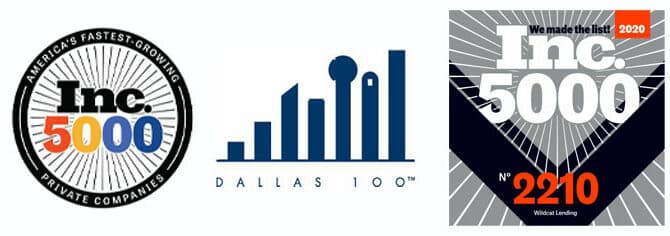For first-time hard money borrowers in Fort Worth, navigating the world of private lending can feel overwhelming. Unlike traditional loans, hard money lending focuses on the asset’s value rather than your financial history. This makes it a fantastic option for investors who need quick access to capital, especially in competitive markets like Fort Worth. However, there are a few essential things first-time borrowers need to know before diving in.
Understanding Hard Money Loans: The Basics
Hard money loans are asset-based loans, primarily used for real estate investments. Instead of relying on a borrower’s credit score or income, hard money lenders evaluate the property’s value and potential for income generation. This makes them particularly appealing to investors who need fast funding to close deals on fix-and-flip projects, rental properties, or short-term investments.
In Fort Worth’s real estate market, where opportunities often come and go quickly, the speed and flexibility of hard money loans can be a game-changer for investors.
1. Know Your Loan-to-Value (LTV) Ratio
One of the most critical aspects of a hard money loan is the Loan-to-Value (LTV) ratio. This ratio measures the loan amount against the property’s value and varies depending on the lender’s criteria and the investment type. At Wildcat Lending, for example, our LTV ratio can go up to 70%, which means you can get a loan worth 70% of the property’s value.
For first-time borrowers, understanding this ratio is essential. If you’re purchasing a property valued at $200,000, with a 70% LTV, you may be eligible for a loan of $140,000. The remaining amount typically needs to be covered through other means, such as cash on hand or additional financing. Knowing your LTV ratio helps set clear expectations for how much you’ll need to contribute upfront.
2. Research the Local Market Thoroughly
Fort Worth is a dynamic and growing market with diverse neighborhoods, each with its own investment potential. Before applying for a hard money loan, conduct in-depth research on Fort Worth’s real estate trends, neighborhood values, and market forecasts. Certain areas may have higher rental demand or better resale values, impacting the profitability of your investment.
For instance, neighborhoods undergoing revitalization or development often provide strong potential for appreciation. Knowing where to invest can maximize your loan’s effectiveness and ensure a more secure return on investment.
3. Have a Solid Exit Strategy
An exit strategy is how you plan to pay off your loan. Hard money loans are typically short-term, usually lasting between 6 months to a few years, and often come with interest-only payments. Therefore, having a clear exit strategy is crucial to your success as a borrower.
Popular exit strategies include:
- Refinancing into a conventional mortgage: Once the property has been rehabbed or stabilized, you may refinance with a traditional lender.
- Selling the property: Many fix-and-flip investors plan to sell the property for a profit, using the proceeds to pay off the loan.
- Rental income: If you plan to hold the property, you could use rental income to cover monthly payments and eventually refinance.
Planning your exit strategy from the beginning ensures that you stay on track to repay the loan within the terms, helping you avoid penalties or additional fees.
4. Budget for Unexpected Costs
While hard money loans cover a significant portion of the property’s purchase price, borrowers must also be prepared for additional costs. Fort Worth real estate investments, especially fix-and-flip projects, often involve renovation expenses, property taxes, insurance, and closing costs. It’s essential to budget for these expenses and set aside extra funds to cover any unforeseen issues.
For first-time borrowers, working with a contractor or inspector can help estimate renovation costs accurately. Factor in a buffer for unexpected repairs or delays, as these can affect your cash flow and loan repayment timeline.
5. Compare Interest Rates and Terms
Interest rates for hard money loans are typically higher than traditional loans, given the lender’s increased risk. Rates can vary depending on the lender, the property type, and market conditions. First-time borrowers should compare rates and terms from different lenders to ensure they’re getting a fair deal. Some factors that may affect your rate include:
- The loan’s LTV ratio
- The property’s location and value
- Your experience as an investor
In Fort Worth, hard money rates generally range from 8-15%. Although higher than traditional rates, these loans offer flexibility and speed, which can be invaluable in a hot market. Always review the loan terms carefully and clarify any points of confusion before signing.
6. Understand the Importance of the Property’s Condition
For hard money lenders, the property itself is a critical component of the loan approval process. Properties with strong income potential or resale value are more likely to qualify for favorable terms. Before applying, consider the property’s condition and potential market value after any planned renovations.
If you’re investing in a fixer-upper, provide the lender with a detailed renovation plan and budget. This shows the lender that you have a well-thought-out strategy for increasing the property’s value, which could improve your chances of securing the loan.
7. Work with a Reputable Lender
Choosing the right lender is essential for first-time hard money borrowers. Reputable lenders, like Wildcat Lending, provide transparent terms, industry experience, and a streamlined process that helps investors navigate the loan process with ease. Check the lender’s track record, read customer reviews, and ensure they are licensed to lend in Fort Worth, Texas.
At Wildcat Lending, we understand the unique challenges and opportunities within the Fort Worth real estate market. Our team’s experience and commitment to transparency mean you’ll have the support you need to make informed investment decisions.
8. Prepare for a Quick Repayment Timeline
Most hard money loans are short-term, typically ranging from 6 months to a few years. First-time borrowers should prepare for this accelerated repayment schedule. If you’re used to traditional 15-30-year mortgage terms, a shorter timeline can feel intense, but it’s manageable with a solid plan.
Consider your project’s timeline, from acquisition to renovation and resale or refinancing. Make sure your exit strategy aligns with the loan’s term, so you can repay the loan within the agreed-upon timeframe without incurring extra fees.
9. Calculate All Fees and Closing Costs
Hard money loans come with specific fees, including origination points, which are a percentage of the loan amount. These points, along with closing costs and possible prepayment penalties, should be accounted for in your budget. Understanding these fees ensures you’re fully aware of the total cost of the loan, helping you avoid surprises at closing.
When discussing the loan with your lender, ask for a clear breakdown of all fees. Knowing exactly what to expect can help you make more accurate financial projections.
10. Stay in Regular Contact with Your Lender
Once your loan is approved and your project is underway, maintain regular communication with your lender. Inform them of any significant changes in the property’s condition, timeline adjustments, or other factors that may affect the project. Transparent communication helps build trust and ensures you have support if unexpected challenges arise.
Ready to Start Your Hard Money Investment Journey?
If you’re ready to explore hard money lending options in Fort Worth, Wildcat Lending is here to help. Our experienced team understands the Fort Worth real estate market and offers fast approvals, flexible terms, and personalized support to help you succeed with your investment. Call Wildcat Lending today at [phone] to get started on your investment journey with confidence.



